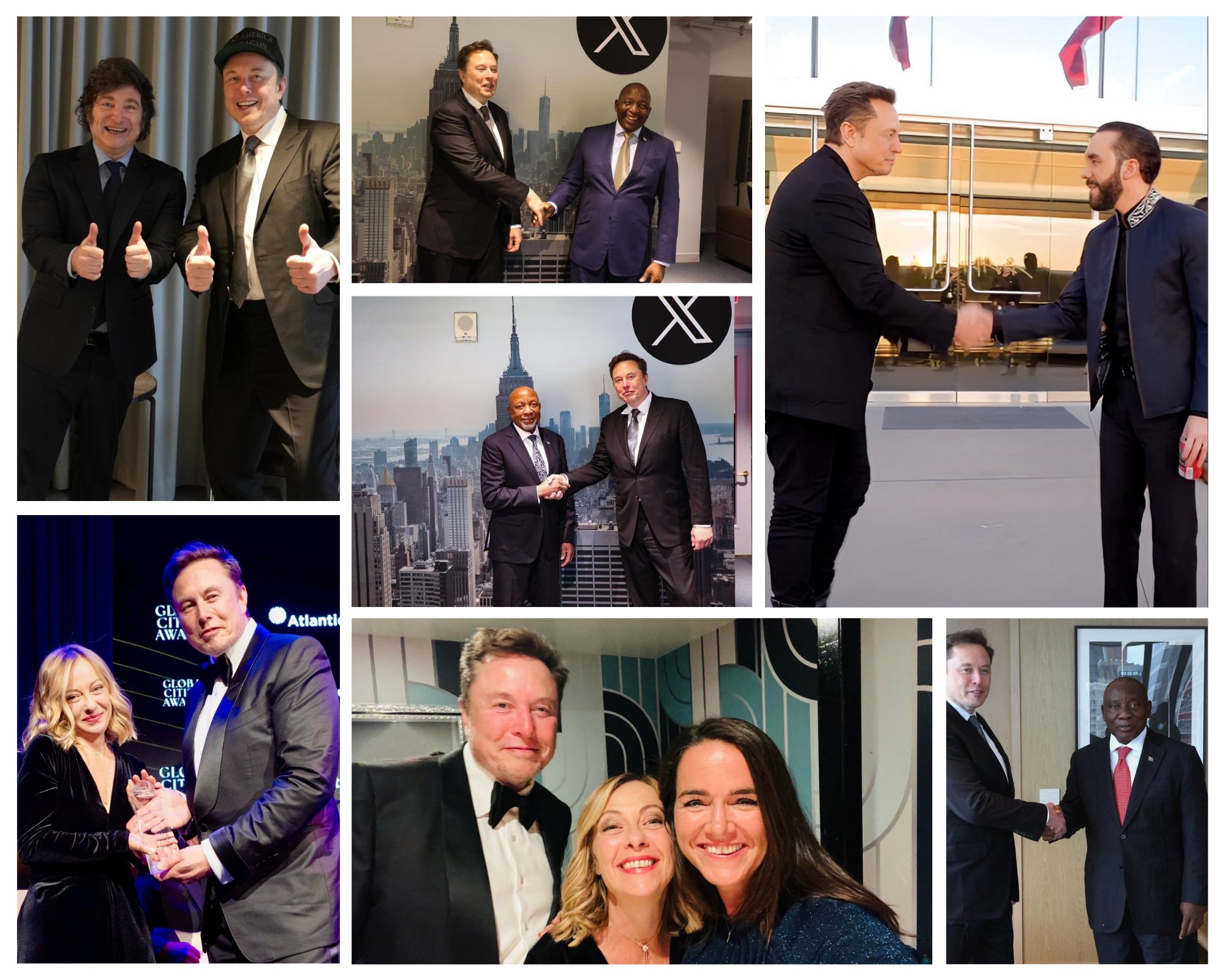Global Diplomatic Engagements: Elon Musk’s Meetings with World Leaders
Elon Musk, the visionary behind Tesla and SpaceX, has once again made headlines, this time through a whirlwind diplomatic tour, meeting with several prominent global leaders. This series of high-profile meetings has generated considerable buzz on social media and news platforms.
Elon Musk recently met with several world leaders:
• Argentina's President, Javier Milei
• Italy's Prime Minister, Giorgia Meloni
• El Salvador's President, Nayib Bukele
• Lesotho's Prime Minister, Sam Matekane
• South Africa's President, Cyril Ramaphosa
• Namibia's… pic.twitter.com/Zi9uhHh2Cm— Dima Zeniuk (@DimaZeniuk) September 25, 2024
The Significance of Musk’s Diplomatic Moves
Musk’s engagement with global leaders extends beyond typical corporate interests, reflecting his growing influence on worldwide policy and innovation. His recent interactions with leaders from Argentina, Italy, El Salvador, Lesotho, South Africa, Namibia, and meetings with a former Hungarian president underline a broader agenda. This may well be a strategic step to align Tesla and SpaceX’s futures with international policies and opportunities.
Potential Discussions and Collaborative Opportunities
Given the diverse nature of the countries involved, the discussions likely covered various topics. In Argentina, for instance, President Javier Milei might have explored renewable energy collaborations with Tesla. Italy’s Prime Minister, Giorgia Meloni, and Musk may have discussed technology innovation and industrial automation. El Salvador’s President, Nayib Bukele, renowned for his interest in cryptocurrency, may have conversed about blockchain and financial technologies.
Spotlight on Africa
The inclusion of several African leaders like Lesotho’s Prime Minister Sam Matekane, South Africa’s President Cyril Ramaphosa, and Namibia’s President Nangolo Mbumba, reveals a keen interest in tapping into the continent’s vast potential. Africa’s leapfrogging in tech adoption and renewable energy offers a fertile ground for Musk’s ventures.
Lesotho, rich in renewable energy resources, particularly solar and wind, could be an attractive site for Tesla’s energy products. South Africa, Musk’s homeland, could benefit from deeper investments in the automobile sector, given its existing market presence. Namibia, with its wealth of natural resources, might offer vital materials for Tesla’s batteries.
Possible Strategic Moves
Former Hungarian President Katalin Novák’s meeting adds an interesting twist, suggesting discussions not just about immediate business opportunities but also long-term geopolitical strategies. Hungary, positioned at the intersection of Western Europe and Central Asia, holds particular significance for infrastructure expansion.
Additionally, there are speculations that Musk might be exploring entry into new markets for SpaceX’s Starlink internet service. Providing high-speed internet in remote and underdeveloped regions could revolutionize connectivity and education, aligning with Musk’s broader vision of global digital equality.
Future Prospects and Expectations
Musk’s diplomatic engagements symbolize a future where tech giants don’t just influence markets but also international policies. Such high-level meetings showcase the shift from traditional diplomacy to a new era where technology and innovation drive global collaborations.
As Musk continues to pioneer in the realms of electric vehicles, space exploration, and renewable energy, his interactions with world leaders hint at ambitious global agendas. Observers and enthusiasts await concrete outcomes, hoping these talks will lead to pioneering projects and policies that shape the future of technology on a global scale.
In the rapidly changing landscape of global politics and technology, Musk’s recent diplomatic engagements underscore the blending lines between business leadership and global policymaking.
